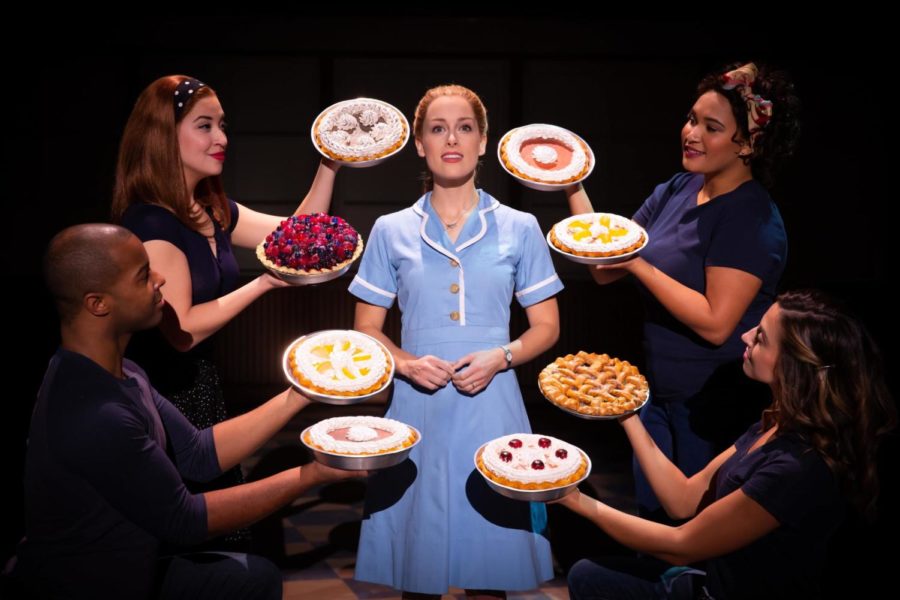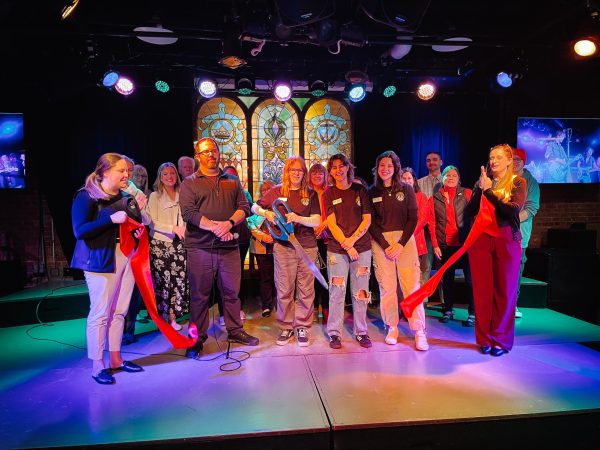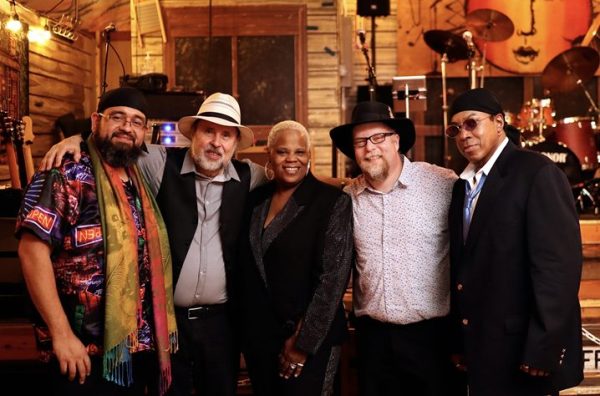“Waitress” serves a captivating musical at Stephens Auditorium
Bailey McCall plays Jenna in “Waitress,” a musical detailing a young woman in the service industry and her quest for liberation.
March 12, 2020
Forget sugar, spice and everything nice. Instead, the audience from the Stephens Auditorium’s production of “Waitress” last Thursday wanted sugar, butter and flour and maybe a cherry pie.
From the very first word sang, the crowd was captivated. The music was by far the best part of the show. The score to “Waitress” was written by Sara Bareilles, and die-hard fans will have no trouble hearing the similarities from her songs. The harmonies were just clashy enough to portray a strong sense of emotion, yet clear and exciting and addictive. The beat is still pounding long after the final note has finished echoing from the rafters.
The musical did so many small things right, things that one only notices when they’re wrong. The choreography was so simple, but every move had purpose and intent. Dramatic moves in unison drew the eye in calculated places without distracting from the main focus of the scene. It allowed the viewer time to rest and recover before the next burst of action and intensity.
The casting was also done incredibly well, particularly with the two principal leads. Jenna, portrayed by Bailey McCall, and Dr. Pomatter, portrayed by David Socolar, blended amazing well in their duets. Their singing was enough to have someone falling in love while their stomach is craving a dark chocolate pie. Socolar did a notable good job expressing his character’s awkwardness and humor, without coming off as cliche.
An interesting use of music in this musical was to distinguish characters. The antagonist, Earl, portrayed by Clayton Howe, sang in a different genre than the rest of the cast. Instead of the indie-pop Bareilles is known for, he sings in more of a grunge rock style. This distinction set the character’s personality deeper than some of the others who had more time in the spotlight.
Unfortunately, most of the other characters had little to no character development. Becky, a supporting role portrayed by Kennedy Salters, was reduced to nothing more than a sassy, black woman who sang soul music. This lack of attention to the character beyond racial stereotypes lead to her power ballad falling flat, and frankly, unnoteworthy. Additionally, the relationship arc between the two love interests happened really fast, and seemed unnatural. While the audience did buy into the relationship, it was not as smooth of a transition as one would prefer.
The scene changes were incredibly distracting. While many were done in between musical numbers or scenes, quite a few were done at unnatural times, such as in the middle of McCall’s emotional climax. The audience was left wondering why the set was changed, especially since Jenna was in the same “room” and had half of her song left. Set changes are much more effective when the scene is supposed to change or in between interactions.
The aforementioned problems are small and easily forgivable, but the biggest tragedy of the entire musical was the climax. What could have been the ultimate redemption moment, ended up falling flat on its face. While McCall was standing up for herself against her oppressor, she was lying down, literally. The submissive body language seemed forced in what should have been the most dominant scene and lost all potential power and impact. Furthermore, the ending wrapped up all the loose ends too neatly. Overall, it was very unsatisfying for such a great musical to leave the audience frustrated in that manner.
To provide support and resources regarding the main themes of the musical, two organizations set up booths in the auditorium lobby. United Way of Story County runs programs for people struggling to stay on their feet. The You and Your Money Workshops are a free learning opportunity for women to learn about managing their finances and preparing for the future. They also assist with the Story County Hunger Collaboration which is a no-questions-asked food pantry. Anther organization promoting their services was ACCESS, which provides 24-hour crisis hotlines for sexual or domestic abuse, emergency housing for victims, legal advocates and much more.

















